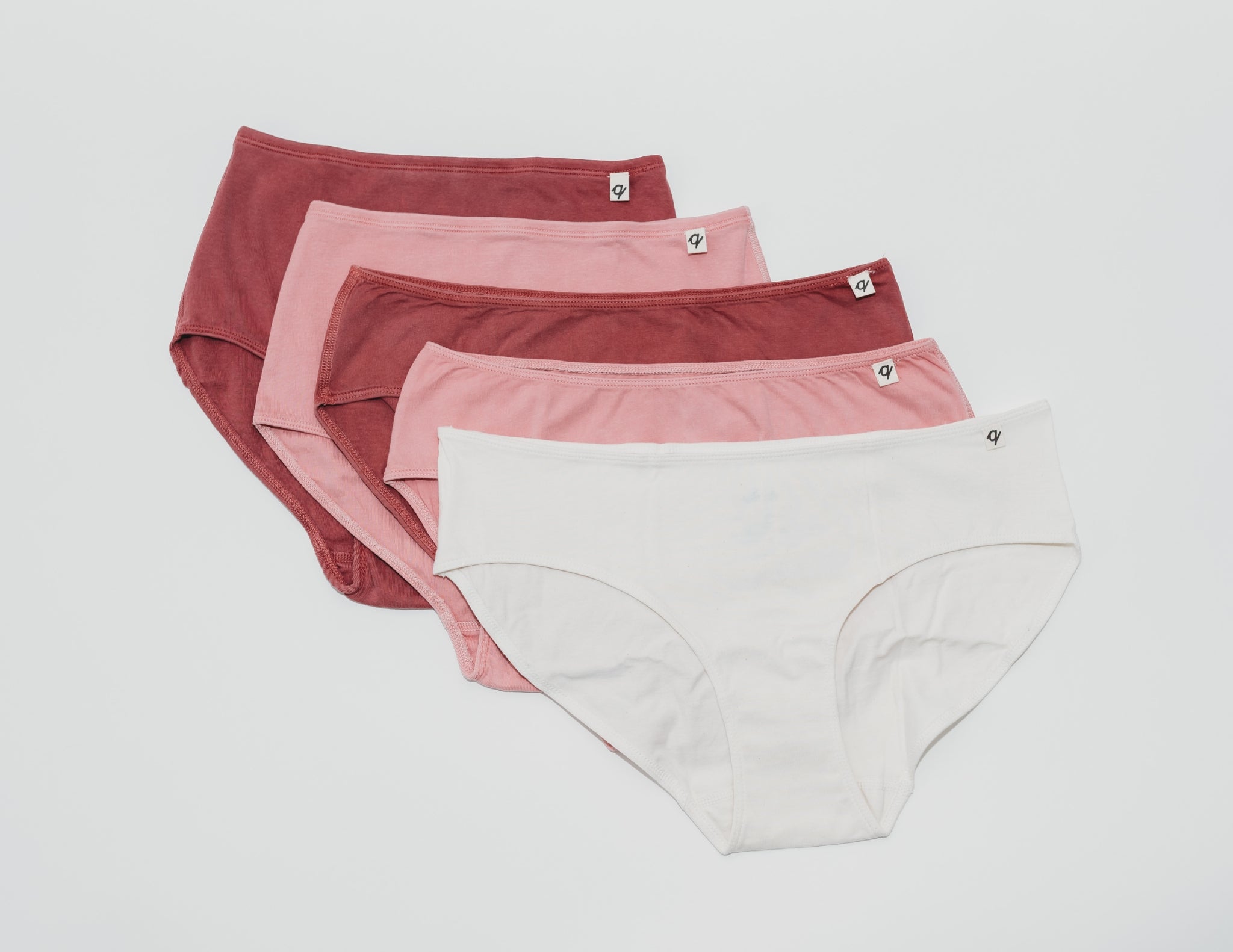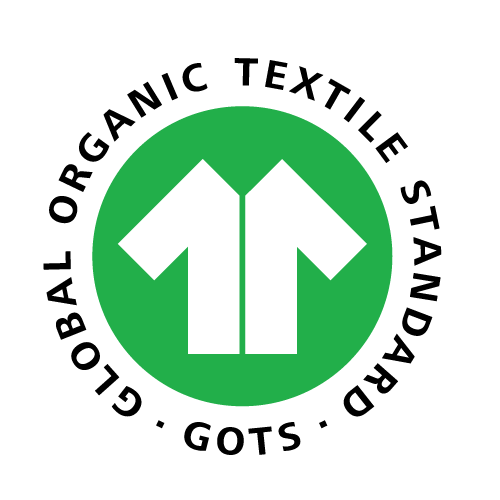
How to Spot Truly Organic Cotton Lingerie: Key Factors Explained
The fashion industry has experienced a significant shift toward sustainability in recent years. With consumers becoming more aware of the environmental impact of their clothing choices, organic cotton lingerie has emerged as a sought-after option. While the demand for eco-friendly products grows, organic cotton lingerie remains relatively scarce in the market. In this article, we explore why this is the case and why organic cotton is crucial for both health and sustainability
Why Is Organic Cotton Lingerie Rare in the Market?
Despite the demand for sustainable fashion, organic cotton lingerie remains a niche segment. Several factors contribute to the limited availability of this eco-friendly option in the lingerie market.
1. High Production Costs
Organic cotton farming involves more time and labor than conventional or regular cotton farming. Unlike regular cotton, which relies heavily on pesticides and synthetic fertilizers, organic cotton is cultivated using sustainable practices, avoiding chemical pesticides and synthetic fertilizers. According to the Organic Cotton Market Report from Grand View Research, organic cotton production is 10-50% more expensive due to labor-intensive methods and lower crop yields. These costs are inevitably passed on to the consumer, making organic cotton lingerie more expensive than its non-organic counterparts.
Furthermore, because organic cotton is less commonly grown than conventional cotton, the supply chain can be more complicated, leading to additional costs for manufacturers who want to use organic cotton in their products. This is why the overall price of organic cotton is high.
2. Limited Availability of Organic Cotton Suppliers
While organic cotton farming has been growing steadily, it still accounts for only a small portion of the global cotton production. According to the International Federation of Organic Agriculture Movements (IFOAM), organic cotton makes up just about 1% of the world’s total cotton production. This means that supply of organic cotton affects the ability of lingerie manufacturers to source the material in sufficient quantities, making it more difficult for brands to offer a wide range of organic cotton lingerie products.
As the demand for organic cotton increases, the industry faces challenges in scaling production to meet that demand.
3. Greenwashing and Consumer Skepticism
With the rise in demand for sustainable products, some brands have taken advantage of this trend by labeling their products as “eco-friendly” or “organic” without truly adhering to the necessary standards. This is known as greenwashing, which can make it harder for consumers to distinguish genuine organic cotton lingerie from products that only claim to be sustainable, and whether it’s really organic cotton. In fact, a 2018 study by the European Commission revealed that 42% of sustainability claims made by fashion brands were misleading or deceptive .
This creates skepticism among consumers, leaving them unsure of whether the product they're purchasing truly benefits the environment and their health.
Why Choose Organic Cotton for Lingerie?
The benefits of organic cotton are a valuable investment for those who prioritize both health and sustainability.
1. Health Benefits of Organic Cotton Lingerie
- Free from Harmful Chemicals: To grow regular cotton, lots of pesticides, herbicides, and synthetic fertilizers are used, many of which can leave harmful residues on the finished fabric. These chemicals can cause skin irritation, allergic reactions, and long-term health problems. The Environmental Working Group (EWG) notes that pesticide residues on cotton fabrics can be absorbed by the skin, potentially leading to respiratory issues, skin conditions, and hormonal disruptions. Organic cotton is grown without these harmful chemicals, meaning the fabric is free from pesticide residues that could irritate the skin. For people who have sensitive skin, eczema or dermatitis, organic cotton lingerie offers a much safer alternative. Its hypoallergenic nature is one of the key benefits that make it a preferable choice for intimate wear.
- Prevents Skin Irritation: Skin irritation is a common issue for individuals wearing synthetic or conventional cotton lingerie. The added chemicals in the production of conventional cotton can exacerbate skin issues. According to studies, synthetic fabrics such as polyester and nylon are not as breathable as natural fabrics like organic cotton. This lack of breathability can trap moisture and heat, creating an environment conducive to bacterial growth, which can lead to rashes, infections, and discomfort. Organic cotton is naturally breathable and moisture-wicking, preventing the buildup of moisture.
2. Environmentally Friendly
Not only does organic cotton have benefits for personal health, it is also an environmentally friendly option. The United Nations Environment Programme reports that cotton farming accounts for approximately 24% of global pesticide sales. Studies suggest that organic cotton requires 91% less water than conventional cotton farming.
3. Comfort and Breathability
Organic cotton is naturally breathable and soft, which makes it a comfortable choice for lingerie. Unlike synthetic materials, which trap heat and moisture, organic cotton allows the skin to breathe freely, reducing the risk of chafing, irritation, and fungal infections. Comfort is one of the most important factors for consumers when selecting lingerie, and organic cotton provides a soft, breathable alternative that meets this need.
For lingerie, this breathability is very important, especially in hot or humid climates. Organic cotton’s ability to regulate temperature helps maintain comfort throughout the day, making it ideal for everyday wear.
4. Durability and Longevity
While organic cotton is softer than conventional cotton, it is also stronger and more durable. The fibers are longer and less likely to fray over time. Organic cotton lingerie tends to maintain its shape, softness, and elasticity even after multiple washes, unlike many synthetic fabrics that lose their structure. Sustainable fashion expert Livia Firth points out that organic cotton contributes to a reduction in clothing waste, which is a major issue in the fashion industry .
How to Spot Truly Organic Cotton
To avoid falling for misleading claims, it's essential to know what to look for when shopping for truly organic cotton lingerie. One of the best ways to make sure you're purchasing an authentic organic product is by checking for specific certifications. These certifications indicate that a product has met rigorous environmental and ethical standards.
Global Organic Textile Standard (GOTS): The Global Organic Textile Standard (GOTS) is one of the most reputable certifications for organic fabrics. It ensures that a product is made from at least 70% organic fibers, with strict regulations covering every stage of the manufacturing process—from farming to production and even the final packaging. GOTS-certified products must also meet stringent environmental and social criteria. This includes the prohibition of harmful chemicals during processing and ensuring fair labor practices are followed. When you see the GOTS label on organic cotton lingerie, you can be confident that the product adheres to one of the highest standards for sustainability and ethical production.
OEKO-TEX Standard 100: Another important certification to look for is OEKO-TEX Standard 100. This certification focuses on testing textiles for harmful chemicals and toxins. While GOTS ensures that a product is organic, OEKO-TEX Standard 100 ensures that the fabric is free from substances that could potentially harm your skin or health. It tests for over 100 harmful substances, including pesticides, heavy metals, and formaldehyde, which can be common in non-organic cotton textiles. Products with the OEKO-TEX label guarantee that they are safe for human use, making them an excellent choice for lingerie, which is worn close to sensitive skin areas.
Fair Trade Certified: The Fair Trade Certified label is another important certification that goes beyond just the product’s material to consider its impact on workers and communities. Fair Trade certification ensures that the cotton used in the product is sourced from farms that pay fair wages, provide safe working conditions, and support community development. It also requires adherence to environmental standards in the farming process.
Why Organic Cotton Lingerie Is The Best Choice
Organic cotton lingerie may still be a relatively rare find in the marketplace, but its health benefits, comfort, and environmental advantages make it a superior option. By choosing organic cotton lingerie, you’re protecting your skin from harmful chemicals. As more consumers demand eco-friendly options, the availability of organic cotton lingerie is expected to grow, making it an even smarter choice for those who value health, comfort, and sustainability.
Organic cotton lingerie is a simple yet impactful step in creating a more sustainable and health-conscious wardrobe. While the market for organic cotton may be smaller compared to regular cotton, the benefits it provides are undeniable, offering comfort, durability, and peace of mind for consumers who choose to make a positive impact on both their health and the environment.















